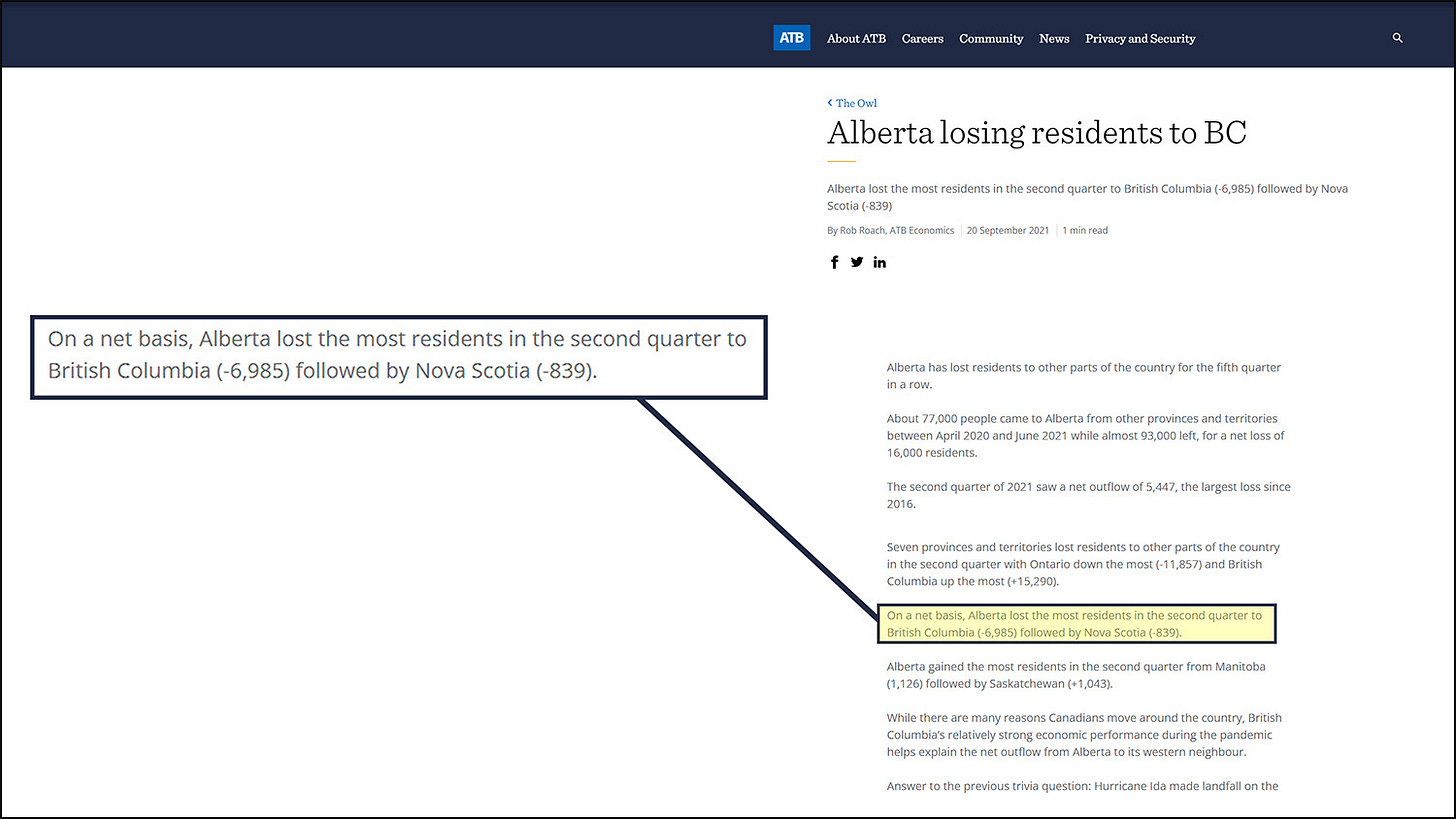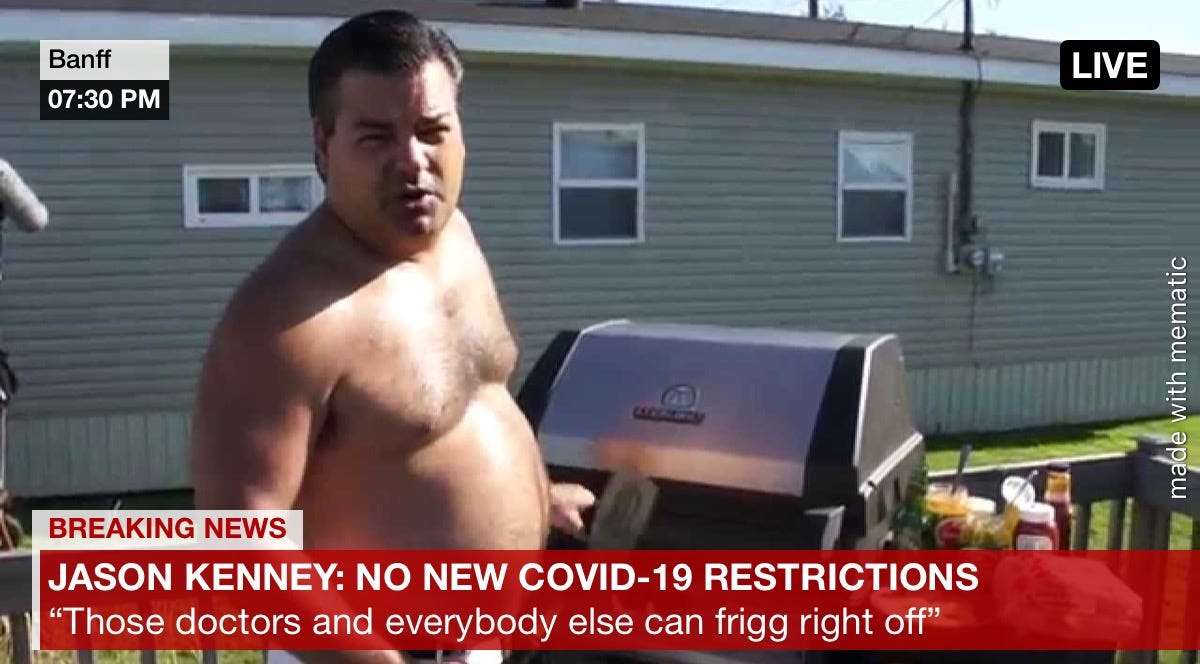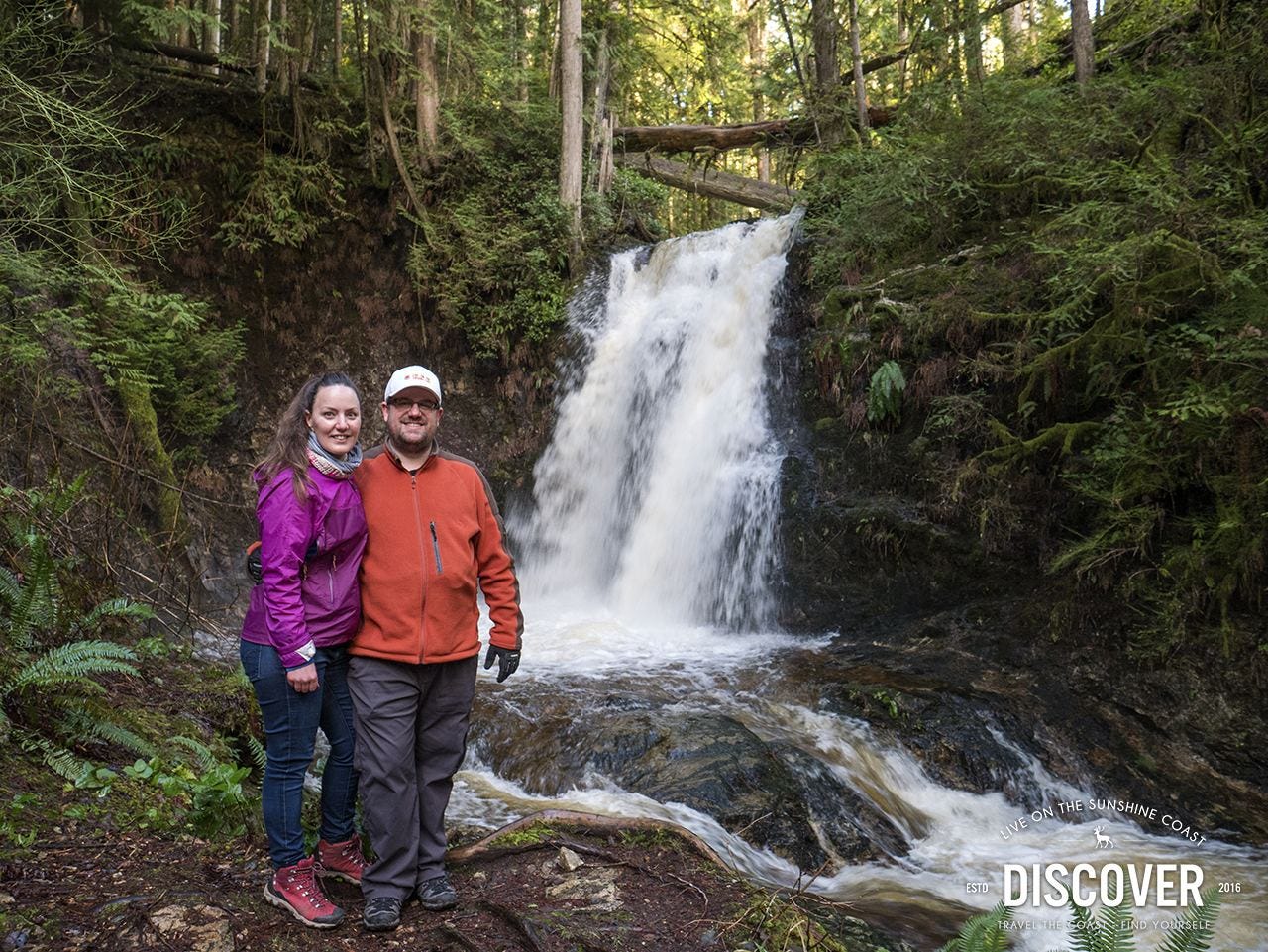Why Albertans are flocking to BC
BC netted nearly 7,000 Albertans in Q2 2021
This post was written using a transcript from the above video. It’s been edited for clarity.
PAUL: Pretty much anytime we upload a video, we get comments letting us know that Val and I are single-handedly destroying the Sunshine Coast. Apparently, our videos are causing property prices and rents to double and triple.
PAUL: On one hand, it's a little bit flattering to think that people think we have that kind of influence, but the truth is that this housing crisis that we're going through on the Sunshine Coast, is not unique to the Sunshine Coast. It's happening in locations all over Canada. It’s hitting the Maritimes, maybe even harder than it is BC.
Interprovincial migration
PAUL: A thread on Twitter discussed interprovincial migration in Canada, and we thought there was some interesting information that provides context to what we're going through here on the Sunshine Coast, and across BC in general. Trevor Tombe is an economics professor at the University of Calgary, and he was sharing some data about interprovincial migration in Canada, specifically about Q2 of this year, when Alberta, Saskatchewan, Manitoba, and Ontario each saw substantial outflows of population.
VAL: More people left out of those provinces than came in.
PAUL: Combined, those four provinces showed a net loss of 24,000 people between April, May and June 2021. When those people leave, they have to go somewhere. The preferred destination was far and away BC with over 15,000 net new residents in the province during that same time period.
PAUL: The Alberta Treasury Branch posts regular updates about Alberta's economy and discussed similar data points as were on Twitter. ATB said that on a net basis, Alberta lost nearly 7,000 people in Q2 2021 just to BC. When you look at the graphs from Twitter and from ATB, you can see that far and away Alberta and Ontario were the biggest losers. BC got a big chunk, but then the Maritimes saw a lot of net in-migration as well. The number isn't as dramatic in the Maritimes, but you're talking far fewer people.
PAUL: When Nova Scotia takes on 4,000 net new people in a province of under a million people, that's a huge change in their population. They're going through something similar, if not probably worse than what we're seeing here in BC.
VAL: I've had that experience with friends from Alberta. Some have moved to BC, and some have moved back to the Maritimes to be close to family. If their job is non-existent in Alberta, why stay in Alberta?
PAUL: For a long time, people from every place that wasn't Alberta moved to the province for work. You went to Fort McMurray, you worked in the oil patch, or maybe you worked in an industry that supported oil and gas. Those jobs are slowing down, and the same can be said, to a degree, about Ontario. For decades, Ontario was the manufacturing hub for Canada, but as more stuff comes from Mexico or China, a lot of those manufacturing jobs are going away.
PAUL: I think that we're going to see fewer of these high-paying or well-paying jobs in Alberta and Ontario. And if you are not getting paid $8,000 or $10,000 a month to live in Fort McMurray, why would you live there? You had people that grew up on the coast or that grew up in the Maritimes that thought, "I’ll relocate to Alberta for the opportunity." They live their lives in Alberta, but now that the jobs and the money that brought them are going away, they want to go back home to the way of life that they know and recognize. I think this data is pointing this out.
VAL: In another graph from Twitter compares Alberta’s population changes in 2014 and 2021. In 2014, if you're between 20 and 50 years old, you were moving to Alberta. Then in 2021, those same age groups are moving OUT of Alberta. Either you’re no longer finding work, or you're leaving because you're not happy with Alberta.
PAUL: There's a lot to like about Alberta and we weren’t hard done by it all by the province. But recently, there's also a lot NOT to like in Alberta.
PAUL: If it gets worse than Alberta, that means it gets a different kind of worse in BC. The more people that leave Alberta due to a lack of opportunity, the more people will come to BC looking for a better life.
VAL: You’re saying BC will experience growing pains if people keep leaving Alberta?
PAUL: That's right. If the Alberta economy slows to a critical stage over the next 10 or 15 years, I can see BC heating up during that same period.
VAL: The oil patch slowed down in Alberta however many years ago, and hasn’t really rebounded. But people stuck around, thinking, “It's going to turn around and I’ll go back to work." But that turnaround never came so now they’re leaving the province. At the same time, if you were working in Alberta, it’s a common aspiration to retire in BC. But because of COVID and the sudden acceptance of remote work, people are making that move sooner. They think, "I don’t want to wait for retirement. I’m moving now."
PAUL: The retirement plan for a lot of Albertans was to work in Alberta for another 10 or 15 years, then retire to Vancouver Island or the Okanagan. Then COVID hits and housing prices go through the roof, and all of a sudden, these same people start doing some arithmetic. They say, "If I work in Alberta for another 10 years, the housing market in other places is appreciating quicker than I earn. Maybe I'm better off relocating now and earning less money, because if I wait 10 years, I’ll be priced out of that market."
VAL: As it is, some have already missed the boat on retiring in BC, because housing prices climbed too much already on the Sunshine Coast and on Vancouver Island. They had plans to move to Vancouver Island and be by grandkids, but now they realize, "Wow, we're going to be spending more on housing in our retirement instead of downsizing and paying less."
BC and Alberta headed in opposite directions
PAUL: I think it's going to get worse in Alberta and Ontario. Alberta doesn't want to hear it, but I think it’s on the downward slide with oil and gas. There’ll be a use for oil and gas for decades to come, but it won’t be the end-all be-all like it has been for the last 50, 60, 70 years. The oil patch in Alberta also gets painted with an overly broad brush.
PAUL: Not all of Alberta’s oil is economically feasible to extract. Some sites produce good product. But then something like the oilsands requires a lot of effort to refine that oil. You're either limited to what it can be used for, or you just have to do a lot of upgrading to turn it into something usable, which means it's expensive. As demand for oil shrinks, the oilsands will be the first resource that goes by the wayside.
PAUL: It's the most carbon intensive to burn. Shell pulled out of Fort McMurray and they’re not the only one. A lot of these bigger companies are pulling out of the oilsands. Maybe they're redeploying that capital someplace where it’s cheaper to extract oil or they're shifting gears and investing in green energy.
PAUL: It's easy to dump on Jason Kenney, because he looks like a little putz, but Rachel Notley, who I quite like, dropped the ball on this energy transition, too. Alberta is still making big bets on an oil and gas industry that will look dramatically different 15 years from now. Even Premiere Justin Trudeau bought a big pipeline with our tax dollars and I don't know how valuable it’ll be 15 or 20 years from now.
VAL: When Rachel Notley was premier in Alberta, she had the chance to turn the province around a little bit and to decouple from oil and gas while reinventing Alberta's workers and focusing on renewable energy. She didn’t make the shift like I had expected she would.
Alberta's overlooked asset
PAUL: Alberta is a huge labour resource. There are so many people there that just want to work.
VAL: Yeah, you're there to work. You'll retire and have fun later, but it's all about working and grinding right now.
PAUL: When political leadership ignores changes to an industry, they’re also ignoring those industrious people. Eventually, those workers move back to their home province or they find better opportunity elsewhere. But if Alberta aggressively said, "In the next 10 years, we'll continue to benefit from oil and gas, but we're going to double down on green energies," they could keep that valuable worker base.
VAL: Instead they’ll leave the provinces.
PAUL: And that’s where BC and the Maritimes will benefit from these skilled Albertans. Not that skilled people don’t exist in these places already, but the new people that are coming from Alberta will disproportionately work like dogs.
Landing spots for Albertans
VAL: When people leave Alberta, where are they going in BC? I would think a lot would go to the Okanagan and Vancouver Island. Maybe smaller centres like Nelson, I guess?
PAUL: There wasn’t any data about specific BC relocation destinations, but anecdotally, we hear about people in Calgary moving to the Okanagan, as that’s relatively close for them. Lots of people from Edmonton dream about living on Vancouver Island.
VAL: And I had two family friends move from Northern Alberta to Vancouver Island.

VAL: Going the other direction, I've had friends from Edmonton move back to the Maritimes to be close to family. They think that if they’re not making big money in Alberta, they may as well be in their home province. I'm kind of excited for those people.
VAL: When I lived in Edmonton, I had lots of friends from the Maritimes that came to Alberta for work. The husband worked in the oil patch, and the wife worked with me as a pharmacy technician. They built lives in Alberta, but now some of them have moved back. They always spoke fondly of home and I liked hearing those stories.
VAL: One thing that’s very disappointing about Alberta is the situation with doctors and nurses and the what United Conservative Party has done to that province’s healthcare system.
PAUL: If we had a week, we couldn't cover everything about what’s not good about living in Alberta right now. It’s a wonderful province filled with wonderful people, but they are being mismanaged to death by an idiot.
What does this mean for the Sunshine Coast?
PAUL: That's a lot of talk about Alberta. What does this interprovincial migration mean long-term for the Sunshine Coast? I'm assuming it means that the current housing shortage isn’t a blip, and that housing prices and rents likely won’t return to levels like we saw in 2018 or 2019. While there’ll be ups and downs and ebbs and flows in the market, I think this demand will be a sustained thing. And when we look 10 years out from now, there’ll continue to be a lot of demand.
VAL: There might be some levelling off or even a bit of a dip, because we had CRAZY increases for a year-and-a-half. But generally, we’ll continue to see demand and prices increasing. The desirability of living in BC and the Sunshine Coast is too high.
PAUL: It's Alberta's loss that its government isn’t turning the economy to face a different direction. A lot of BC communities are going to see people that are originally from the province moving back home, or we’ll see new people coming in from other provinces. These new arrivals will be disproportionately motivated, hardworking, industrious people with big ideas and dreams. If that happens, BC might start to see big booms in places that are appealing to Alberta expats.
This post was written using a transcript from the above video. It’s been edited for clarity.
Connect with Val & Paul
We're Val and Paul and we're a married couple who live on BC's Sunshine Coast! We moved from Alberta to Gibsons in 2014 and love our life on Canada's West Coast! Subscribe to our YouTube channel and email newsletter and you'll learn what it's like to live in the most beautiful place in Canada.














